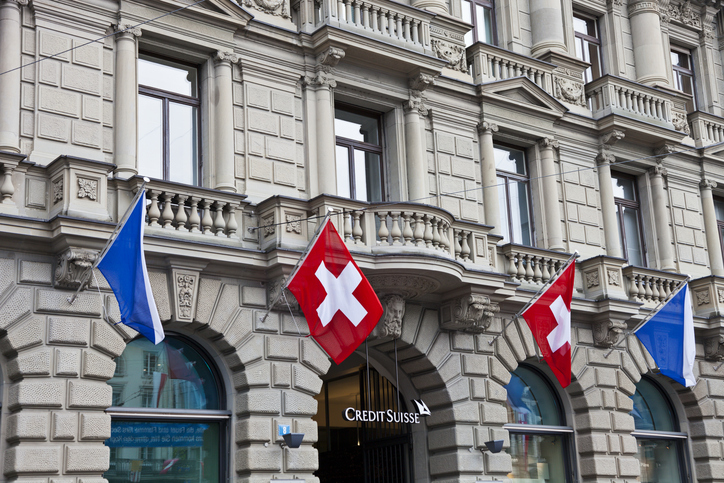Swiss bank accounts are known for their privacy and long-standing appeal among the wealthy, thanks to Switzerland’s strong financial secrecy laws and reputation. However, they typically offer little practical benefit for the average person, as they often require large deposits, charge high fees and may involve in-person visits. While their secrecy was once a major draw, most modern banking systems already provide strong protections for personal financial information. For most individuals, the costs and complexities outweigh any advantages.
For professional help putting your money to work, consider speaking with a financial advisor.
What Is a Swiss Bank Account?
A Swiss bank account is, as the name suggests, a bank account subject to Swiss banking laws. This generally means it is a depository account with a Swiss banking institution legally held in Switzerland.
The second element of that definition is critical. Many Swiss banking institutions do business across borders. If you open an account with a domestic branch of a Swiss institution, your account will be legally held in the country of origin. UBS, for example, is one of the largest banks in the world. While they are a Swiss institution, accounts opened with U.S. branches of UBS will be considered held in the United States and subject to U.S. laws.

Switzerland’s banking sector is well-regarded for a number of different strengths. Historically, it has been very stable, without the kind of booms and busts associated with higher-risk banking environments. Swiss bankers also have a reputation as highly successful wealth managers able to generate above-market rates of return for their clients.
But most developed economies have stabilized and insured their depository sectors, and even in Switzerland it’s rare for an asset manager to actually generate consistent alpha.
The real draw of a Swiss bank account is the nation’s legendary culture of secrecy, with the accompanying wealth and intrigue. This is based largely on Switzerland’s banking privacy laws. In 1934, Switzerland made it a crime for any bank to disclose the identity of an account holder or the contents of the account without the holder’s permission. This near-absolute ban on financial disclosure, combined with the stable institutions behind that secrecy and Switzerland’s geographic proximity to many very wealthy nations, made it a hub of 20th Century international banking.
Consider matching with a financial advisor if you’re seeking advice on keeping your financial affairs private.
The Limits of Swiss Banking Secrecy
Historically, a Swiss bank account meant near-absolute privacy from prying eyes. While this made Swiss banks a popular place for wealthy individuals and institutions to keep assets, it also created a safe haven for debtors, money launderers and tax cheats the world over. Soon after its passage in 1934, Switzerland’s financial privacy laws made it a popular safe haven for Nazi soldiers to stash stolen cash and valuables. Throughout the 20th century, Swiss banking secrecy made the nation a popular place to hide money from the likes of law enforcement, tax agencies like the IRS, and investigative journalists.
The opportunity for criminality has never been absolute. Swiss banks have historically required proof of the account holder’s identity, for example, as well documentation as to the source of assets on deposit. This has tilted the system toward larger pools of assets, generally making it a place to store undisputed wealth rather than the proceeds of unambiguous criminality.
Even there, Swiss secrecy has been rolled back over the years.
Facing frustration and criticism from partner nations, Switzerland has periodically updated its banking secrecy laws to allow some disclosure and cooperation with law enforcement across borders. In particular, today Swiss banks have much more latitude to cooperate on foreign tax and money laundering issues. As a result, the 21st Century Swiss banking system is no longer a particularly effective option for hiding money from tax authorities, as Swiss banks will typically honor a lawfully issued warrant issued by a peer nation. However, Swiss banks remain an extremely popular option for wealthy individuals looking to hide civilly contested assets.
Should You Open a Swiss Bank Account?
In most cases, the answer is no.
A Swiss bank account might be useful for a very specific profile of individual. If you frequently work or live in Europe, are very high net-worth, and are seeking wealth management, a Swiss bank account might be a good option. There are many others as well, but Swiss banks have a well-deserved reputation as good stewards of wealth.
For anyone else, however, there is rarely any good reason to open a Swiss account.
First, the privacy laws surrounding Swiss banks have no legitimate value for most individuals. In fact, it is rare for these privacy laws to ever have a purpose beyond attempting to evade debts, regulation or law enforcement. Any stable economy, such as the United States or European Union, will have strict laws that protect the depository banking sector from private snooping and illegal access.
Then there is the expense. Swiss bank accounts tend to have high minimum deposits (often worth between $10,000 and $100,000 U.S.). They also charge high fees and maintenance costs, particularly for any wealth-management services, and it is inherently expensive to access and move money across borders. All of this creates an ongoing series of costs. Some Swiss banks also require an in-person visit to open an account or make significant changes, adding the cost of a trip to Switzerland to your banking expenses.
Finally, opening a foreign account tends to be somewhat complicated. Foreign banking authorities are required to file a report with the IRS when a U.S. citizen opens an account, and anti-money laundering laws can add several steps to proving your identity and the source of your assets.
Wealthy individuals might get some value from a Swiss bank account. This is a stable banking sector that offers easy financial access across Europe and the world, and which has a well-earned reputation for strong wealth management. This is not a unique set of offerings. Most major American banks offer the same features, but if you have millions of dollars to manage a Swiss account might be valuable.
Otherwise, this is likely to be a lot of time, trouble and expense for no meaningful value.
You can match with a financial advisor if you’d like a professional to weigh in on an appropriate financial strategy for your goals.
5 Common Alternatives to Swiss Bank Accounts
If your goal is asset protection, global access, or professional wealth management, you don’t need to rely solely on Swiss banks. While Switzerland remains a respected financial center, there are other jurisdictions and financial services that offer similar benefits—often with lower fees, fewer barriers and simpler compliance for U.S. citizens. Here are five to consider:
- Private banking in the U.S. Many of the major U.S. banks offer private banking services that include dedicated advisors, customized investment strategies, and access to international markets. These services often come with built-in legal protections and the stability of FDIC insurance, without the high minimums and cross-border complications of Swiss accounts.
- Offshore banking in other jurisdictions. Other countries with strong banking reputations include Singapore, Luxembourg, Liechtenstein, and the Cayman Islands. These locations offer comparable financial privacy and asset security, along with modern banking infrastructure. Each jurisdiction has different rules regarding taxes, disclosures and residency requirements, so due diligence is essential.
- Multi-currency and foreign currency accounts. Some domestic and international banks offer multi-currency accounts, which allow you to hold, send, and receive money in various currencies without opening a fully offshore bank account. These accounts are useful for frequent travelers, business owners, or anyone managing income or expenses in multiple countries.
- International brokerage accounts. For those focused on investment rather than traditional banking, international brokerage accounts offer access to global markets, foreign securities, and diverse asset classes. U.S.-based brokerages with global reach—like Fidelity or Charles Schwab—can offer international exposure without requiring a foreign bank relationship.
- Asset protection trusts. In some cases, a properly structured domestic or offshore trust may offer stronger protection than a bank account alone. These can help shield assets from creditors or legal claims when structured in compliance with U.S. tax and reporting laws.
Bottom Line
Swiss banks are famed for their near-absolute client secrecy. While they no longer offer the complete privacy they once did, Switzerland’s banks are a very interesting network of financial institutions. However, for an individual, they are generally no more than that: a potentially expensive curiosity.
Tips on Picking the Right Bank
- A financial advisor can help you build a comprehensive retirement plan. Finding a financial advisor doesn’t have to be hard. SmartAsset’s free tool matches you with vetted financial advisors who serve your area, and you can have a free introductory call with your advisor matches to decide which one you feel is right for you. If you’re ready to find an advisor who can help you achieve your financial goals, get started now.
- Keep an emergency fund on hand in case you run into unexpected expenses. An emergency fund should be liquid — in an account that isn’t at risk of significant fluctuation like the stock market. The tradeoff is that the value of liquid cash can be eroded by inflation. But a high-interest account allows you to earn compound interest. Compare accounts from these banks.
Photo credit: ©iStock.com/stockwerk, ©iStock.com/OlyaSolodenko
